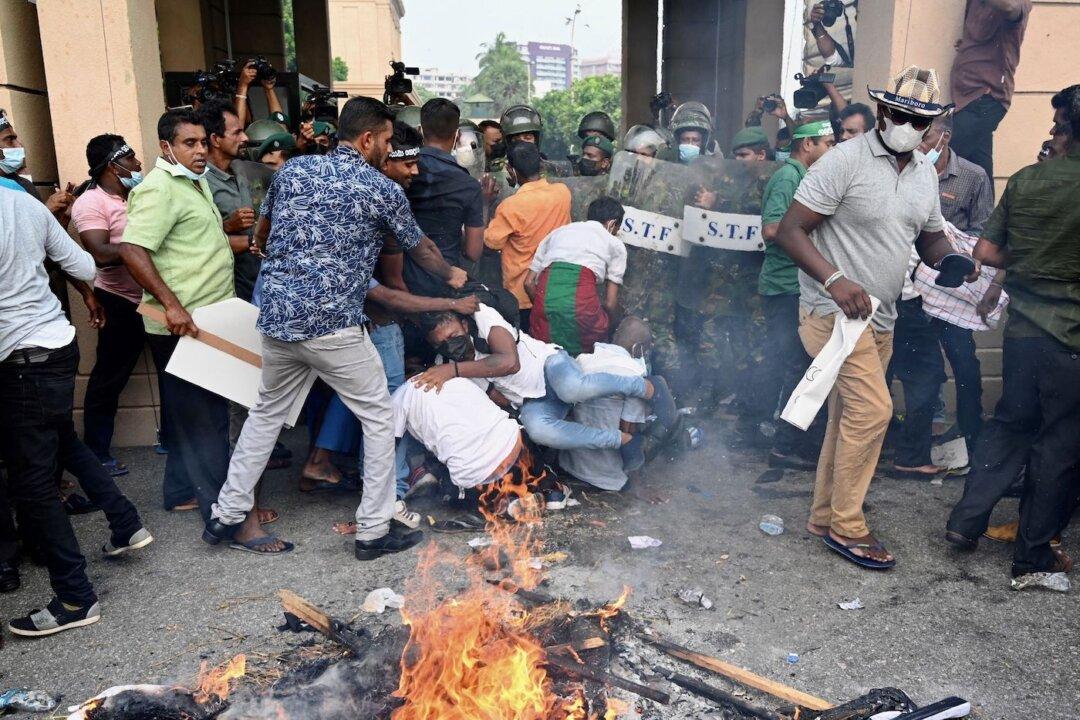Sri Lanka’s government declared a state of emergency on Friday following a violent protest outside the president’s private residence, as public outrage mounts over his government’s handling of the country’s economic crisis.
The president’s Media Division said that “a group of organized extremists” carrying “iron bars, knives, and sticks” marched toward Sri Lankan President Gotabaya Rajapaksa’s residence in Mirihana on Thursday.





